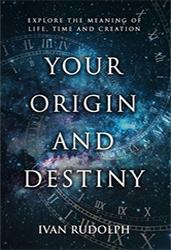Moorundi Rationing
Eyre’s very success at developing a model community at Moorundi threatened to bring its own suite of troubles.
It inspired settlement alongside the Murray and Eyre foresaw problems for the Aborigines, who were dependent upon a free access to the river for their sustenance. “As the country becomes more settled and the lands more enclosed, their natural resources will no longer be left them and they will have a just right to expect that deficiency would be made good to them by those who have been the cause of it.”
In this statement he foresaw that there would be a future need for regular rationing of Aborigines, which led in time to the dole and similar handouts. He was adamant this was no more than they deserved to compensate in part for the loss of their traditional food sources, but that it should not be an end in itself, stifling Aboriginal pride, industry and personal development. He consistently encouraged the locals to help in development, and rewarded appropriately those who did at Moorundi.
“I have assiduously endeavoured to bring the natives as much about me as possible, to teach them to do such work as was adapted to their character and habits, or to barter with me such produce as it was in their power to procure, as fish, game etc.” He actively discouraged a begging mentality. “On these occasions I give them either flour or rice according to the reward I think they deserve, but I invariably make it a rule never to give anything to a native (except at the monthly issue of flour) unless he has first earned it by work or by bringing some equivalent for it in barter. The consequence is that many of the natives frequently apply to me for work, and although their labour is neither constant nor steady, yet the mere fact of their being brought so much and so closely in contact with Europeans must gradually tend to wear away the wilder shades of their original character.”
Eyre’s hope was that after the provision of food became standard, the indigenous people should be guided to the next step, which would be self-reliance. “It is possible that if means at the same time were afforded of teaching them industrial pursuits, a proportion of the food required might eventually be raised by themselves.”
Historically, free handouts have not helped the Aborigines in the long term. Multiple health issues together with navel-gazing have been the consequence, rather than an engagement with today’s world as valued modern men and women with a national and international role to play.



